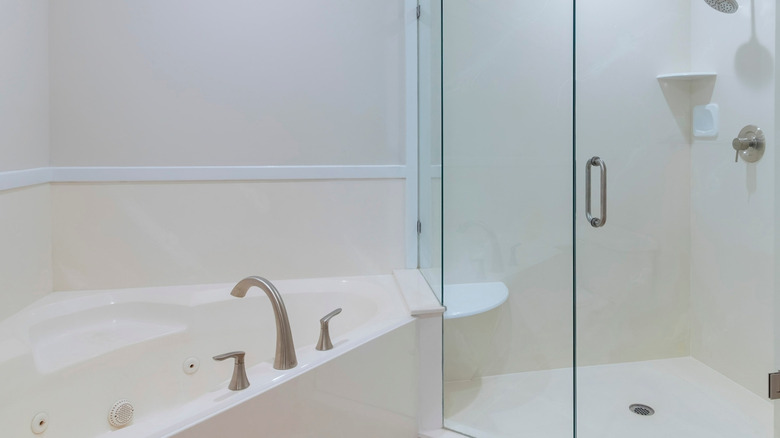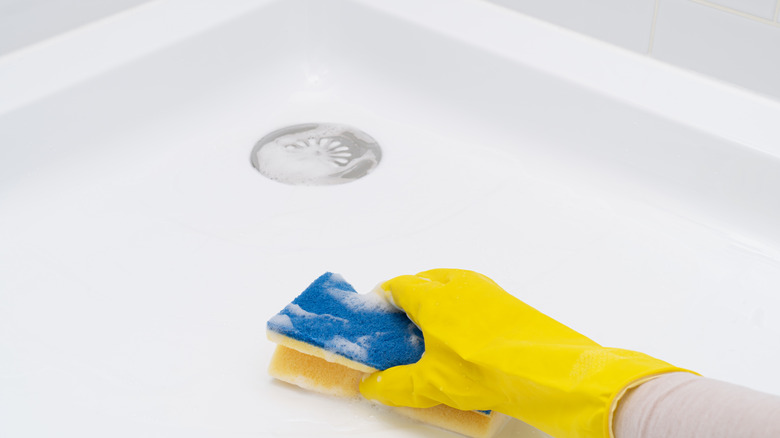Why Acrylic Panels Just Might Be The Best Alternative To Ceramic Tiles For Your Shower
When remodeling your shower, it can be daunting to pick a material that will hold up well without destroying your budget. Although ceramic tile is often seen as the default for bathrooms, tile showers come with distinct disadvantages. If you're looking to complete your remodel without breaking the bank, acrylic panels or inserts may be an excellent option.
These panels are made from sheets of acrylic reinforced with either fiberglass or resin. It's a durable, non-porous material that is naturally resistant to stains and very easy to clean. In addition, acrylic can be opaque like glass or designed to mimic the look of a variety of materials including tile, natural stone, or even satin. For showers, you can either purchase individual panels or opt for a shower insert, which are one-piece coverings for your existing bath or shower. You can also buy acrylic shower kits that come with other components like faucets, shower heads, and doors.
Its budget-friendly nature is one of acrylic's biggest benefits. Although exact numbers vary depending on factors like size and the contours of your shower, an average acrylic shower is priced at about $3,000; a comparable tile shower averages around $8,000. Acrylic is also easier to install than tile. Generally, it only takes one to two days to install, while tiling can take twice as long.
Keeping acrylic panels fresh and clean
Overall, acrylic is a solid choice for your shower and can last 10 to 20 years. It requires virtually no maintenance, while ceramic tiles should be re-grouted at least every eight to ten years, depending on how well your grout has held up over time. However, there are a few things to keep in mind to ensure that your acrylic lasts as long as possible.
First, although acrylic holds up well in showers, it is still less durable than other surfaces like natural stone and softer than glass. As a result, acrylic can be prone to scratches. Not only are these unsightly, but scratches in your shower can grow mildew. In addition, acrylic can be sensitive to harsh cleaners and abrasives like Epsom salt. Although you can still use Epsom salt for a bath, you want to thoroughly rinse it afterward, and never try Epsom salt cleaning hacks. You should also avoid bleach and ammonia-based cleaners since they can cause your acrylic to become discolored.
To properly clean your acrylic shower, you don't need anything more than a dish sponge or soft washcloth and a non-abrasive cleaner. You can purchase products marked as safe for acrylic surfaces, use dishwashing detergent, or create your own cleaner from an equal mix of white vinegar and warm water. If you encounter any areas that do need a scrub, don't reach for steel wool or scrubbing pads. Instead, use a soft microfiber cloth to avoid any scratches.

